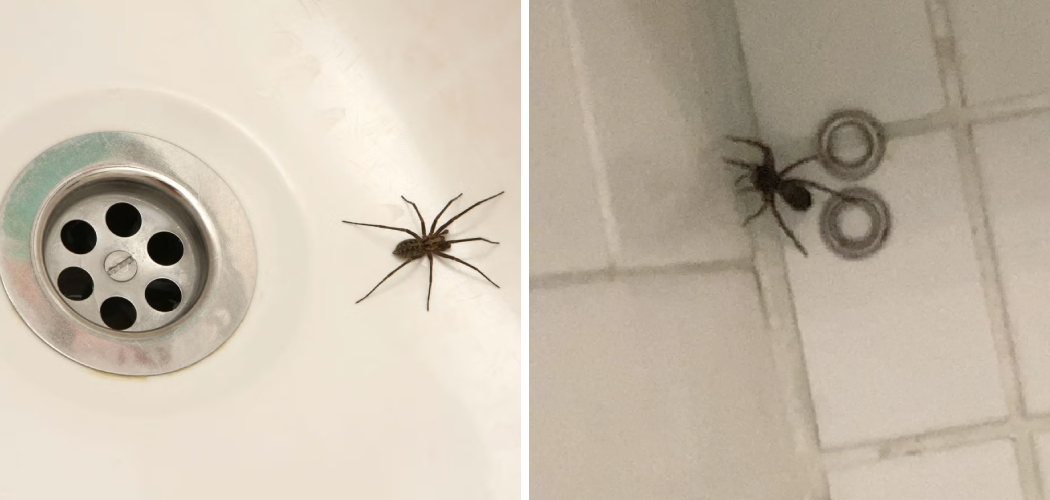Spiders finding their way into bathroom and kitchen sinks can be an unsettling experience, particularly in humid environments where their presence seems more frequent. These eight-legged critters usually venture indoors seeking moisture and food, often drawn to the damp, dark spaces provided by drains. Though not always originating from the plumbing system itself, spiders can access these areas by climbing through small openings or gaps surrounding pipes.
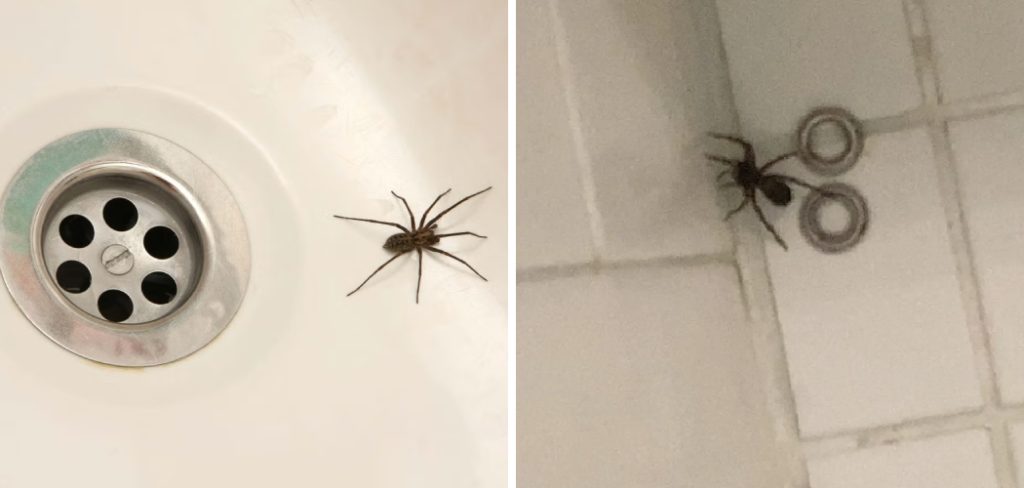
Understanding “how to stop spiders from coming up the drain” requires examining these entry points and the conditions attracting them. This article will delve into the reasons for spiders’ appearance in drains, including moisture and their attraction to dark, enclosed spaces. We will explore various preventative measures to mitigate their encroachment and natural and chemical repellent strategies. Additionally, practical tips for reducing spider sightings will be covered, offering comprehensive solutions for a spider-free living environment.
Understanding Why Spiders Appear in Drains
Seeking Moisture and Food
Spiders are naturally drawn to areas abundant with moisture and food sources, primarily insects, which can make bathrooms and kitchen sinks attractive targets. The presence of water, either from daily use or persistent leaks, creates an ideal habitat that supports small insects and other prey, inadvertently inviting spiders. These opportunistic creatures follow where their sustenance leads, often ending up in unexpected places like drains.
Attraction to Dark, Damp Spaces
The structure of drains provides dark, damp environments that mimic the natural habitats spiders prefer, such as underneath rocks or within thick vegetation. This allows them a comfortable resting or hiding spot during the day and an opportunity to wait for insects to unknowingly wander by.
Climbing in Through Small Openings
Spiders may enter drainage systems through small gaps around plumbing fixtures or even crawl up from the basin’s overflow hole. They do not necessarily climb “through” the pipes but exploit any openings available, using their nimbleness to access these hidden spaces.
How to Stop Spiders from Coming up The Drain: Preventative Measures
Seal Cracks and Gaps Around Pipes
A primary step in spider prevention is inspecting the areas around bathroom and kitchen pipes for any small gaps or cracks. Carefully examine where pipes enter walls or flooring, as these tiny openings can act as convenient entry points for spiders. Utilize caulk or expanding foam sealants to fill these gaps, effectively barricading a path into your home and hindering spider movement toward drain areas.
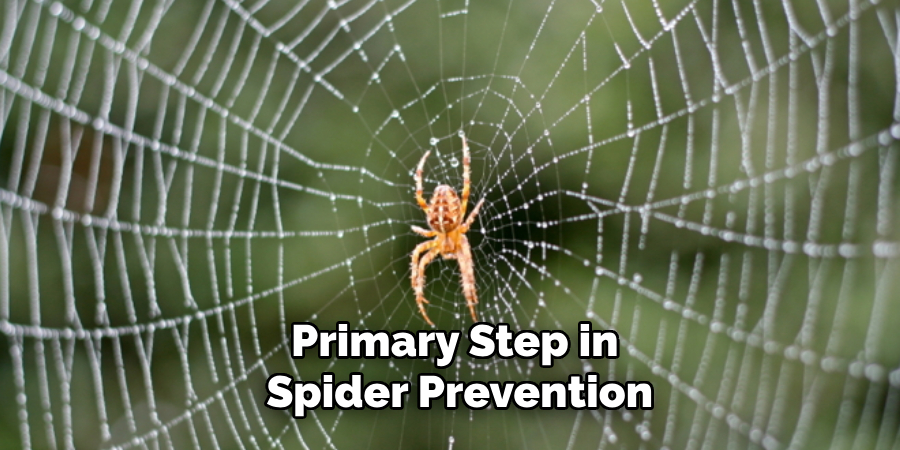
Install Drain Covers or Stoppers
Using drain covers or stoppers is an efficient strategy to keep spiders at bay. These tools serve as a physical barrier, preventing spiders from entering the drain while keeping debris out. Ensure that covers or stoppers fit snugly over your drain openings to maintain effectiveness, and regularly remove them to clean their surfaces and maintain optimal function.
Regularly Clean and Clear Out Drains
Routinely cleaning your drains can keep them free of moisture, mold, and food particles. For a natural cleanse, use a mixture of baking soda and vinegar, or opt for commercial drain cleaners. Regular drain clearing can also eliminate potential food sources that attract spiders, deterring them from lingering in these areas.
Keep Bathroom Ventilation in Good Condition
Maintaining excellent bathroom ventilation reduces dampness and humidity, which might otherwise attract spiders. Regularly inspect and clean bathroom fans or use a dehumidifier to ensure moisture levels stay low, making the environment less enticing for these arachnids. Proper ventilation supports a drier, less hospitable climate for spiders, steering them away from drains.
How to Stop Spiders from Coming up The Drain: Natural Remedies to Repel Spiders
Vinegar Spray Solution
One effective and safe method to repel spiders is by using a vinegar and water spray solution. Vinegar’s strong odor is a natural deterrent for spiders. Mix equal parts of vinegar and water in a spray bottle to create this solution. Shake well before use and spray around the edges of sinks, drains, and other areas spiders frequent. This method is non-toxic and safe for use around drains, ensuring spiders stay at bay without harming your plumbing system.
Citrus Essential Oils
Citrus essential oils, such as lemon or orange, can effectively repel spiders due to their pungent aroma, which spiders find unpleasant. To utilize this remedy, put a few drops of citrus essential oil on a cotton ball and place it near drain openings or in the corners of your bathroom. Alternatively, mix citrus oil with water in a spray bottle and spritz around these areas to create a spider-unfriendly environment.
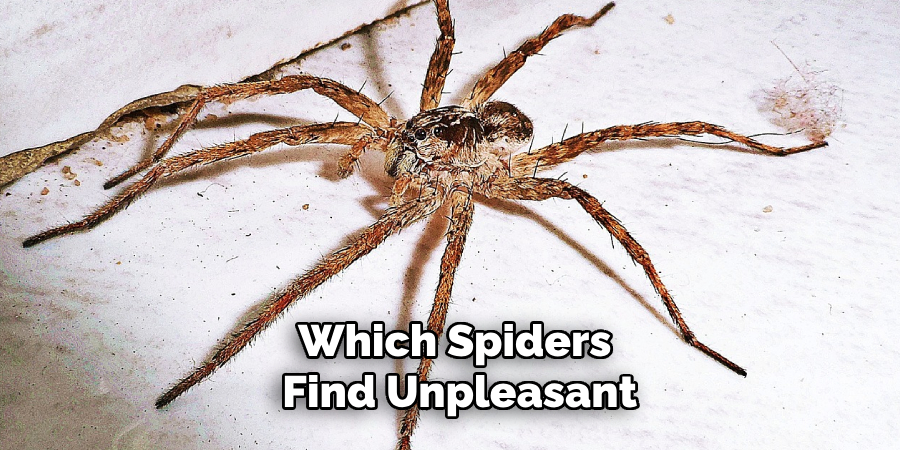
Peppermint Oil Spray
Peppermint oil is another natural spider deterrent. Add 15-20 drops of peppermint essential oil to a spray bottle filled with water to make a peppermint oil spray. Shake well and spray liberally around bathroom sinks, drain areas, and anywhere spiders tend to appear. The regular application encourages spiders to keep their distance, as the smell of peppermint repels them.
Baking Soda in Drains
Baking soda serves a dual purpose: it effectively neutralizes odors and deters insects and spiders. Sprinkle baking soda directly into drains and let it sit for a few hours before flushing it with hot water. This will help maintain a fresh-smelling drain area, reducing its appeal to spiders and other pests.
Chemical Solutions to Keep Spiders Away
Anti-Spider Sprays and Repellents
Commercial anti-spider sprays designed specifically for bathrooms can offer an efficient solution for repelling these eight-legged intruders. These sprays commonly contain natural or synthetic substances that are unpleasant to spiders but safe for human use when applied correctly. Key products recommended include Dr. Killigan’s Insect Spray and Miss Muffet’s Revenge Spider Killer, which can be misted around sinks and drain perimeters.
It’s crucial to follow application instructions precisely to avoid residue build-up or exposure risks, ensuring a safe environment for all household members.
Bleach or Ammonia for Deep Cleaning Drains
To discourage spiders and other pests, periodically pouring a bleach or ammonia solution down the drain can be highly effective. Mix a small amount of bleach or ammonia in a large volume of water for a gentle yet thorough cleaning. These solutions’ strong smell and cleaning power help minimize organic material build-up, deterring spiders by removing potential food sources. Ensure proper ventilation during use, and never combine ammonia with bleach to avoid releasing dangerous fumes.
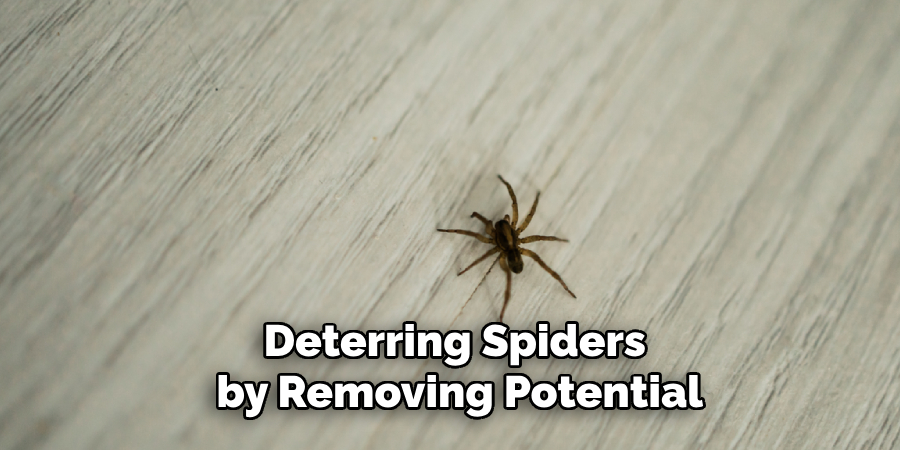
Insecticide Around Pipe Entrances (if necessary)
Applying insecticide around pipe entrances might be warranted in severe cases of infestation. Choose a product labeled for indoor use with specific instructions for bathroom areas. Carefully apply the insecticide following the manufacturer’s guidelines, concentrating on cracks and crevices near plumbing fixtures. Wear protective gear such as gloves and masks to prevent inhalation and ensure the product does not come into contact with water sources to avoid contamination.
Use sparingly and only as a last resort to avoid unnecessary chemical exposure.
Household Habits to Discourage Spiders
Regular Dusting and Vacuuming
One of the most effective ways to deter spiders from entering your home is by maintaining a clean environment through regular dusting and vacuuming. This practice removes cobwebs and eliminates small insects that spiders prey upon. Vacuuming regularly can help keep these insects at bay, reducing the food supply for spiders and making your home less attractive to them.
Control Humidity Levels
Spiders are often drawn to damp environments, so controlling humidity is crucial. Installing or routinely using a dehumidifier can significantly reduce moisture levels in your home. Likewise, ensuring proper ventilation with a bathroom fan can help minimize humidity, creating a less appealing environment for spiders to settle.
Dispose of Organic Waste Properly
Proper organic waste disposal in the kitchen and bathroom is essential. Ensure that no food particles enter bathroom drains, especially if sinks share plumbing connections, as these can become breeding grounds for insects. In the kitchen, regularly clear crumbs and manage moisture to prevent attracting pests that might serve as a food source for spiders.
Check and Clean Window Screens
Inspecting and maintaining window screens is important to prevent spiders from easily accessing indoor spaces. Regularly check for any tears or gaps in the screens and repair them promptly. Keeping window screens intact helps create a barrier that spiders and other pests are unable to penetrate, keeping your indoor areas more safeguarded.
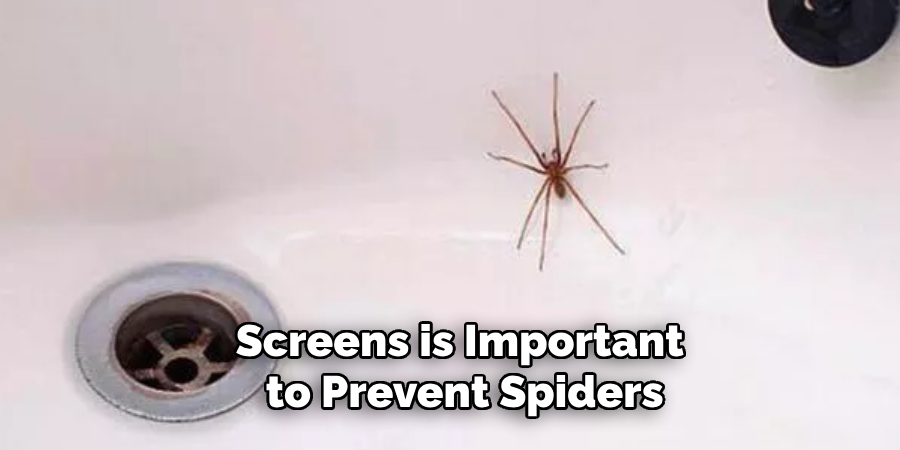
Additional Tips for Spider Prevention Throughout the Home
Use Natural Lighting and Declutter
Spiders are less attracted to well-lit and uncluttered spaces, as they prefer dark and hidden corners to build their webs. To discourage their presence, maximize natural lighting during the day by opening blinds or curtains and reducing the clutter that provides hiding spots. Regularly organize and tidy up storage areas to minimize the chances of spiders taking residence.
Move Plants Away from Windows
Plants placed too close to walls and windows can inadvertently create habitats for spiders. To prevent this, maintain a few inches of distance between plants and any potential entry points, such as windowsills or wall edges. This reduces the likelihood of spiders venturing from plants into your living spaces.
Regularly Inspect and Seal Entry Points
Conduct routine home inspections to identify cracks or gaps in window frames, walls, and doors where spiders might enter. Seal any discovered crevices with caulk or weatherstripping to create a barrier that deters spiders and other pests from entering your home. Regular maintenance helps maintain a spider-free environment.
When to Contact a Pest Control Professional
Signs of Persistent or Severe Spider Presence
If spiders persistently appear in your home despite consistent prevention efforts, it may be time to consider professional pest control services. Situations warranting expert intervention include frequent sightings of venomous spiders, a noticeable increase in spider webs, or the discovery of numerous egg sacs, indicating a growing population.
Benefits of Professional Treatment
Professional pest control can offer targeted spider treatments and advanced techniques designed for long-term prevention. Experts utilize safe, effective methods to address infestations, providing peace of mind and a reliable solution to persistent spider problems. This approach ensures comprehensive coverage and minimizes spider re-entry.
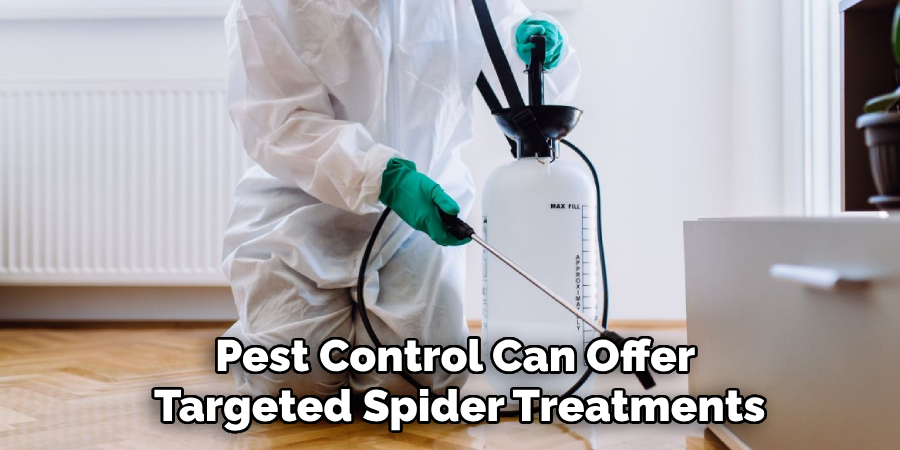
Conclusion
In summary, understanding how to stop spiders from coming up the drain involves a multi-faceted approach. Key strategies include sealing openings around drains and using natural repellents like essential oils. Maintaining a clean environment through regular washing and decluttering can prevent spiders from lingering. Combining these tactics ensures a noticeable difference in reducing spider presence.
Consistent efforts in cleaning and strategically placing repellents will keep your bathroom comfortable and spider-free. Embrace these habits for a lasting impact, ensuring your home remains a safe and peaceful refuge.

